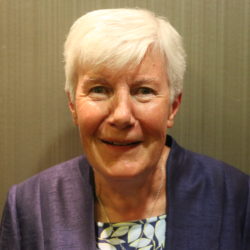What is Community Development?
If I were to answer this question thirty years ago I might have talked about ’helping the residents’. This suggested an inequality in my relationship to the people where I and others would assume that we knew best what the people needed. In doing this I/we assumed an ‘expert’ position, placing myself ‘above’ people in the community!
Thanks to my friends in local communities my understanding of ‘Community Development’ has radically changed.
It has been said that the longest journey is the journey of fifteen inches from head to heart – it’s true! Understanding at head level the meaning of ‘Empowerment’ and ‘Partnership’ is only the first step. To take this to heart and live it, is a much longer process requiring reflection, and in my experience it can also influence how we pray.
Community Development means dropping one’s own agenda (however exciting it might appear!) and believing that the ‘wisdom is in the group’ – that it’s only when everyone’s voice is heard that the steps to the future can be taken.
To work with people, standing side by side, means changing one’s position in a community or group. In contrast to how I might have positioned myself thirty years ago, it means ‘leading from behind’. This means supporting and encouraging residents in having their voices heard. The words of John the Baptist come to mind ‘He/She (the voice of the people) must increase and I must decrease’ (those of us working from a true community development model must become less visible).
I hope John the Baptist doesn’t mind being quoted in a different context!
The following quote, for me, sums up what Community Development is all about:
Go to the People
Live with them, Learn from them, Love them.
Start with what they know,
Build with what they have.
But with the best leaders
When the work is done,
The task accomplished
The people will say,
“We have done this Ourselves.”
Lao Tsu. China. 700 B.C


